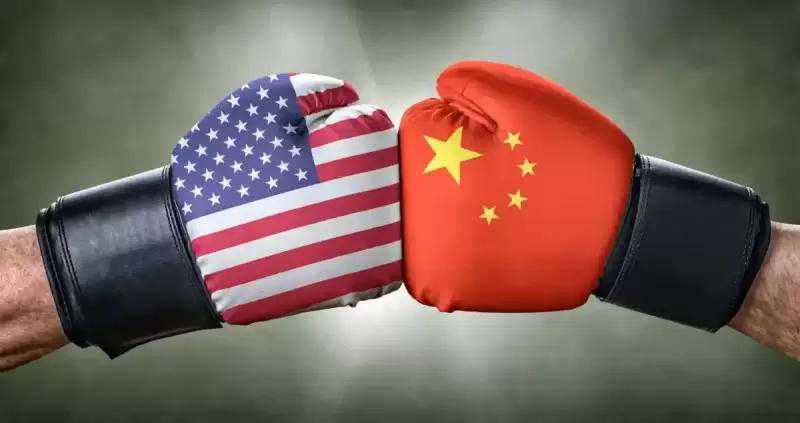 |
|
 |
|
 |
|
 |
|
 |
|
 |
|
 |
|
 |
|
 |
|
 |
|
 |
|
 |
|
 |
|
 |
|
 |
|
Cryptocurrency News Articles
China Restricts U.S. Investments Amid Rising Geopolitical Tensions
Apr 02, 2025 at 06:25 pm
China has been tightening its grip on companies looking to invest in the U.S., signaling a shift in its approach to foreign investments.

China is limiting U.S. investment in response to geopolitical tensions.
After announcing sanctions on American military contractors and executives in retaliation for U.S. arms sales to Taiwan, China is now placing greater restrictions on companies seeking to invest in the U.S., according to Radio France Internationale (RFI).
Earlier this year, China halted a $23 billion deal in which BlackRock (BLK), a well-known U.S. firm, aimed to acquire key ports in the Panama Canal. The deal, designed to strengthen U.S. investment in strategic shipping lanes, encountered considerable opposition from Chinese officials.
China’s leadership had reservations about the U.S. expanding its influence over crucial infrastructure, leading to a delay in the agreement, which ultimately fell through despite initial approval from relevant Chinese authorities.
The sanctions on the military contractors and executives are a response to U.S. arms sales to Taiwan, an action that Beijing views as a step too far. These sanctions are in addition to those imposed last year following the visit of then-House Speaker Nancy Pelosi to Taiwan.
The sanctions target personnel from Lockheed Martin (NYSE:LMT), Raytheon (NYSE:RTX), and Boeing (NYSE:BA), along with the executives of weapons manufacturers.
The sanctions stem from Beijing’s irritation with what it sees as interference in its domestic affairs, following the U.S.’s imposition of export controls on semiconductors and other high-tech products essential for advanced weaponry and artificial intelligence.
Furthermore, China is reducing the presence of U.S. financial institutions in the country and limiting Chinese companies’ access to American stock markets.
The government is now requiring additional scrutiny for Chinese firms planning to list in the U.S., a move that appears to be a response to a recent surge in initial public offerings (IPOs) from Chinese companies in the U.S.
This action signals Beijing’s intent to sever economic ties where possible and is part of a broader strategy to defend national interests as tensions with Washington escalate.
China’s new restrictions come amid heightened geopolitical tensions and a shift in Beijing’s approach to foreign investments.
Disclaimer:info@kdj.com
The information provided is not trading advice. kdj.com does not assume any responsibility for any investments made based on the information provided in this article. Cryptocurrencies are highly volatile and it is highly recommended that you invest with caution after thorough research!
If you believe that the content used on this website infringes your copyright, please contact us immediately (info@kdj.com) and we will delete it promptly.
-

- Senator Chris Murphy Accuses President Donald Trump of Orchestrating a Bribery Scheme Involving His TRUMP Meme Coin
- Apr 11, 2025 at 09:15 pm
- Senator Chris Murphy has accused President Donald Trump of “running a backdoor bribery scheme,” alleging that his personal cryptocurrency allows CEOs and foreign oligarchs to secretly send him money in exchange for favors.
-

-

- Rexas Finance (RXS) Is at a Turning Point in Its Trip, Trading at About $0.20. It Comes in Ninth Among Cryptocurrencies
- Apr 11, 2025 at 09:15 pm
- The price fluctuation of Cardano lately shows conflicting results. ADA dropped by about 1.81% to 2.74% over the past 24 hours; its weekly losses vary from 6.3% to 8.58%, indicating a more notable reduction than the 4.3% decline of the broader crypto market.
-

-

-

-

-

-

- This Spring, the 23rd of April Will Be the Loudest Crypto Event of the Year – ArbitrageScanner Will Present a Product for Cryptocurrency Analysis That Has No Equal on the Market
- Apr 11, 2025 at 08:55 pm
- This spring, the 23rd of April will be the loudest crypto event of the year – ArbitrageScanner will present a product for cryptocurrency analysis



























































